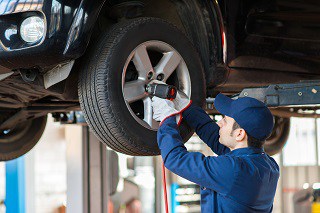Tire Safety This Winter
A problem in the tire or wheel system might increase the chances of a breakdown or vehicle accident. As a result, the driver might have to make a claim against their auto insurance. Frequent claims might mean that insurers raise premiums. So, it’s usually best to reduce the potential for tire problems.
Potential Tire Issues in Winter
Though durable, tires are not weatherproof or foolproof. Exposure to the elements could increase their risk of damage or failure. Common tire hazards might include:
- Tires with worn treads will have a harder time gripping the roadways. This could make it harder for drivers to control the car.
- Precipitation or debris could contaminate roadways. This might make it harder for even strong tires to grip the road.
- Tire pressure sometimes changes relative to changes in temperature. As air contracts and expands with changes in heat. Therefore, colder winter weather may impact the PSI in the tires. Poor inflation might lead to control problems.
These risks might become higher in times of adverse weather. Since there’s often a higher chance of bad weather in winter, drivers often should pay special attention to their tires.
Preventing Tire Issues
Seasonal precautions can help drivers ensure the integrity of their tires during winter.
- Your mechanic should inspect your suspension and wheel system regularly. Regular tire rotation or replacement can often help tires wear evenly. The mechanic should also check the shock absorbers, power steering or other parts for signs of damage.
- Check your tire pressure throughout the winter. Make sure your tires remain within the normal PSI ratings for your vehicle. Add air as needed.
- Inspect the tread on your tires to ensure that it has not worn down to unsafe levels. You can often perform tread tests on your own time, or have a mechanic check the tread.
- If you live in an area prone to wintry roads, snow tires might be a good investment. Snow tires offer better construction and stability on roads impacted by winter weather. However, if you don’t see a lot of winter weather, these might prove a poor investment.
By keeping an eye on your tires in winter, you might prevent damages that could lead to a car insurance claim. Remember, car insurance usually won’t cover wear and tear to your tires. Therefore, always keep them in good working order. For more information about car insurance, you can give us a call at 813-689-8878.

